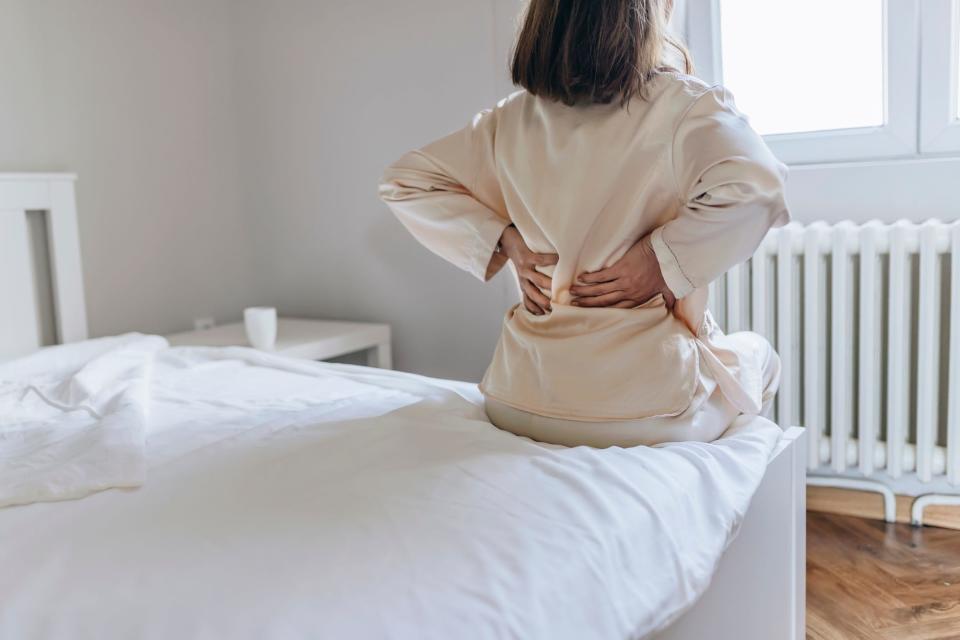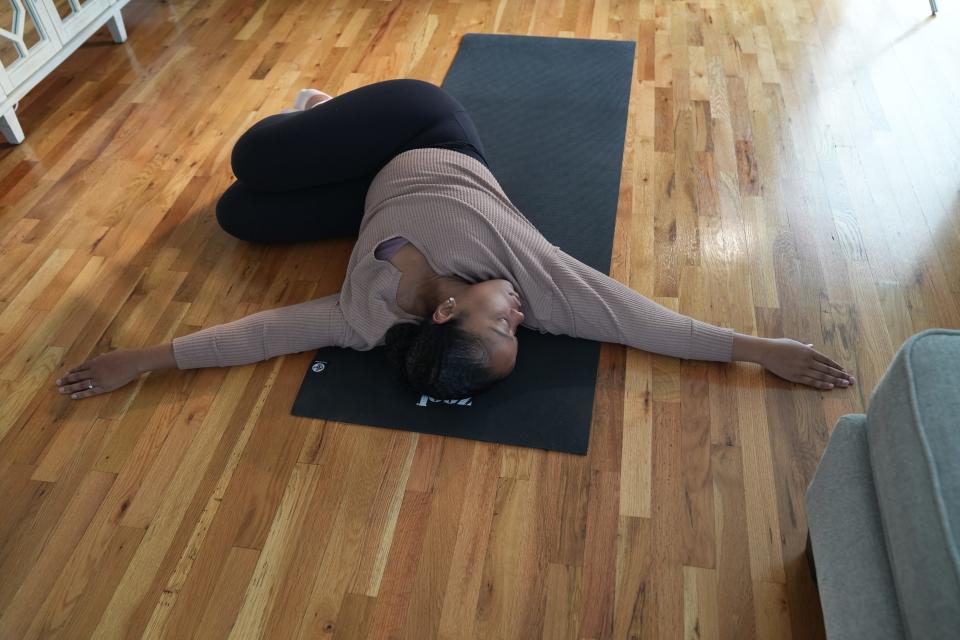Advil? Muscle relaxers? Hypnosis? Study lists best medication for lower back pain
Whether it's from a slip or fall, picking up heavy objects or a lack of exercise, almost everyone seems to have lower back pain at some point in life.
A new study, published Wednesday in the Journal of Orthopaedic Research, lists the most effective medications for reducing lower back pain and disability.
Lower back pain has been the leading cause of years lived with disability since 1990, according to the 2016 Global Burden of Disease Study. It's caused by injury to a muscle (strain) or ligament (sprain).
Serious cases may require surgery. Physical therapy and pain relievers can also help.
Here's what type of pain meds the new study found most effective:
Ibuprofen vs. the muscle relaxer
Researchers wrote they found 18 randomized clinical trials that focused specifically on lower back pain that lasted no more than 12 weeks.
The study looked at the following types of analgesics: aspirin and acetaminophen (Tylenol, Paracetamol and Panadol); and nonsteroidal anti-inflammatory drugs, also called NSAIDs.
Common NSAIDs include ibuprofen (Advil, Motrin); naproxen (Aleve, Naxen, Naprosyn, Stirlescent); and celecoxib (Celebrex, Elyxyb).
America has a pain problem: How can we find relief?
Proposed Idaho drug legislation: Idaho bill would criminalize giving mRNA vaccines – the tech used in popular COVID vaccines

Celecoxib is not available without a prescription. Neither are muscle relaxers, which were also researched.
The study found the best medication for acute lower back pain was a combination of nonsteroidal anti-inflammatory drugs and prescription muscle relaxer – that combo was effective in reducing pain and disability by the end of one week.
Combining an NSAID with acetaminophen was associated with a greater improvement than taking an NSAID alone, the study found.
The study also found taking acetaminophen alone did not reduce pain significantly.
Important to note: The study's results apply only to lower back pain that isn’t chronic, according to the study’s corresponding author, Dr. Filippo Migliorini of the department of orthopedic, trauma, and reconstructive surgery at Universitätsklinikum Aachen in Germany.
A least 1 in 5 people live with chronic pain. Some experts put the figure at 100 million. And nearly 1 in 10 are disabled by it, according to the Centers for Disease Control and Prevention.
Chronic pain lasts more than several months. Results from the 2019 National Health Interview Survey (NHIS) show that:
About 20.4% of U.S adults had chronic pain (defined as pain on most days or every day in the past 3 months).
About 7.4% of U.S. adults had high-impact chronic pain (defined as chronic pain that limited their life or work activities on most days or every day for the past 3 months).
CDC's new opioid rule: Amid backlash, CDC's new opioid guidance aims to curb addiction and treat patients

Acupuncture, hypnosis, meditation may help with chronic pain
Meanwhile, growing evidence from the National Institutes of Health suggests some complementary approaches, such as acupuncture, hypnosis, massage, meditation and music-based interventions, may help manage some chronic pain.
Also on the list: tai chi, qigong and yoga.
Although the psychological and physical approaches (acupuncture, meditation, yoga, massage) studied for chronic pain have good safety records, that doesn’t mean that they’re risk-free for everyone.
"Your health and special circumstances (such as pregnancy) may affect the safety of these approaches," according to the NIH.
Considering nutritional approaches such as dietary supplements? Remember that natural doesn’t always mean safe and that some dietary supplements may have side effects or interact with medications.
Natalie Neysa Alund covers trending news for USA TODAY. Reach her at nalund@usatoday.com and follow her on Twitter @nataliealund.
This article originally appeared on USA TODAY: Best medication for lower back pain: Ibuprofen, muscle relaxers ranked

